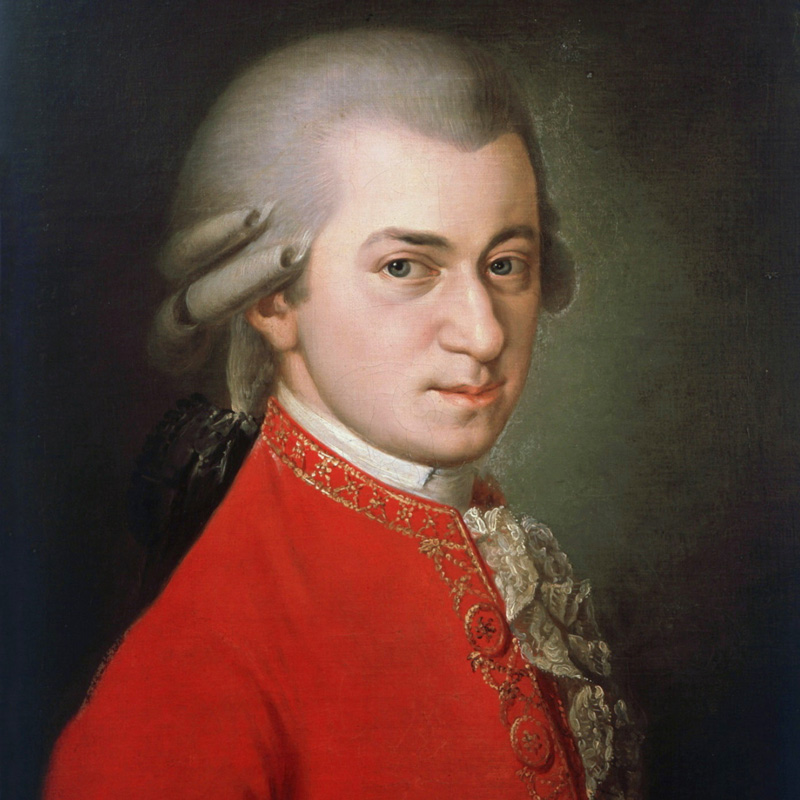 WOLFGANG AMADEUS MOZART (1756-1791) is revered as one of the greatest composers in the history of Western music, having brought the style of the Classical period (1750-1820) to its culmination. He grew up in Austria as a renowned child prodigy, and composed over 800 works in his short life.
WOLFGANG AMADEUS MOZART (1756-1791) is revered as one of the greatest composers in the history of Western music, having brought the style of the Classical period (1750-1820) to its culmination. He grew up in Austria as a renowned child prodigy, and composed over 800 works in his short life.
Growing up as a pianist and violinist, he composed his first piece at age five, and his first opera at twelve. As children, Mozart and his sister Maria Anna (known as Nannerl) traveled all over Europe, performing for royalty.
As a young adult, Mozart moved to Vienna and tried to earn a living as a pianist and composer. Though his concerts were very popular, he could not find an aristocratic patron who would provide him with a salary. Musicians were expected to behave like humble servants, but Mozart could not think of himself as a servant. Lacking a salary, his financial circumstances became increasingly dire. He died in poverty and in debt at the age of 35.
The Requiem, composed while he lay dying, is perhaps his most iconic and beloved work, but remains unfinished. Mozart instilled a sense of eternity in the work by borrowing “ancient” musical material, including themes from Handel’s The Ways of Zion do Mourn and the fugue “And with his stripes we are healed” from Handel’s Messiah. Over 20 composers and musicologists have developed alternative completions for the Requiem.
